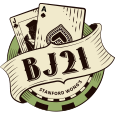Although many of the people who come to this website are card counters, there are no doubt a great number of folks who come here just to find out a little bit about the best way to play the game of blackjack without counting. It is for those folks that this post is written.
You will have a disadvantage off-the-top in virtually any blackjack game that is currently being offered. How can a player overcome this disadvantage by using basic strategy play alone? The answer lies in getting as many comps as possible through the best basic strategy play you can use.
The first task for a player then is to learn basic strategy. One can learn a generic basic strategy, such as those described in books like Professional Blackjack or Knock-Out Blackjack and play to a level that is very close to what one can expect by using a specific strategy designed for a specific number of decks and set of rules. A strategy designed for six-deck games where the dealer stands on soft 17 is very close to a generic strategy. Specific basic strategies for a variety of rules can be found at Skip Hughes' site at <http://www.blackjackinfo.com/>. One can also find a generic basic strategy at Bob's Blackjack University, which can be found at <http://www.bju21.com/>.
Once you have mastered basic strategy, it is time to start putting it into practice at the casinos. Find out what the comping requirements are at the casinos in which you wish to play. Often, you can get this information by contacting a casino host and simply asking. The host can tell you how many hours of play at what betting levels are required for specific comps, such as meals, rooms, show tickets or what is called RFB (rood, food and beverages). The formulas used by different casinos vary, but most casinos assume they have about a 2% advantage over the average player and they will comp a percentage of that back to the player. The percentage most often cited by many authorities is 40% of the casino's expected win, but this isn't a hard and fast rule.
Things to look for to get ahead with comps should be a liberal comping system that provides the most bang for the buck in the kind of casino where you want to play. Game selection is important, but the way a basic strategy player looking for comps selects games is far different that what a card counter would do.
The rules of the game and the number of decks in play may not necessarily be the most important factor for a comp player. Since the casinos estimate that you will play a certain number of hands per hour, which is usually assumed to be 60 hands per hour, you want to find a game that is much slower than that. Some rules of thumb would be to look for hand-held games with crowded tables. Hand-held, or pitch games as they are commonly called, usually deal fewer hands per hour than shoe games. Shoe games are faster. When looking at shoe games, try to find games with crowded tables and slow players, as well as slow dealers. Watch the play for a few moments before sitting down. If the dealer is very fast and the players aren't taking their time, look for another table. Games with poor penetration, that is, where a large number of the cards aren't dealt out to the players is another factor you should seek out. Poorly penetrated games means that you will play fewer hands per hour because the dealer will be spending more time shuffling the cards, since he or she isn't dealing out as many cards. Games with complex shuffle procedures should be found as well. Again, these procedures mean fewer hands per hour, which translates into less money on the table and a smaller expected loss for you. The best scenario would be a single deck game with five or more players, where the dealer only deals one round per shuffle. Short of that, double deck games where the dealer only deals out about 50% of the deck or shoe games with a hand-shuffle and 2 or more decks left in the shoe at the shuffle point are things you want to look for. A crowded table is always better than a heads-up game for comp purposes. A crowded table where the players are talking, laughing, joking and otherwise kibbitzing with each other are good signs of a slow game.
Avoid tables with shuffle machines or continuous shuffle machines (CSM's). These machines speed up the game and cost you money.
Make sure you get a rating card and present it to the pit boss or floor person in the pit. You should be sure you are getting full credit for the time you spend at the tables. When the pit boss comes by to check your bet, try to put out a bet that is larger than your usual bet. He is going to compute an average bet for your play that is based on his periodic checks. If you see him coming, remember to put out your bigger bet.
Do things to slow down the play. Talk to the dealer and other players. Make slow and deliberate decisions about the strategy you will use with each hand. It doesn't hurt to ask other players, the dealer or the pit boss what they would do with the hand, especially in plays that include soft hands or making a double down or split decision. Take frequent bathroom breaks while preserving your spot at the table. You will still get credit for your time and it is the best time of all, since you are not playing any hands at all during such breaks.
Ask for comps when you play, especially at casinos other than the one you are using for your 'home base'. By getting food comps directly from the pit, you can turn a simple room comp into a room and food comp without much trouble. Ask the pit boss for a meal or show tickets. Often, these kinds of comps can be had for a minimal amount of play. If you are turned down, ask why. Ask the pit boss what level of play he wants to see for the comp you requested. This is good knowledge to have for future reference.
Once you have established a record of play, it is likely that you will start getting offers through the mail. Even low level players often get such offers, that may include free rooms, meals and other amenities. Sometimes, casinos will send you cash coupons that you can use on your next visit.
By playing with the best strategy and using the tips outlined in this post, you can make up the loss due to the house advantage with comps and even cash. Of course, there are considerations that must be given to bankroll and wise money management, but I'll save those for another post.










